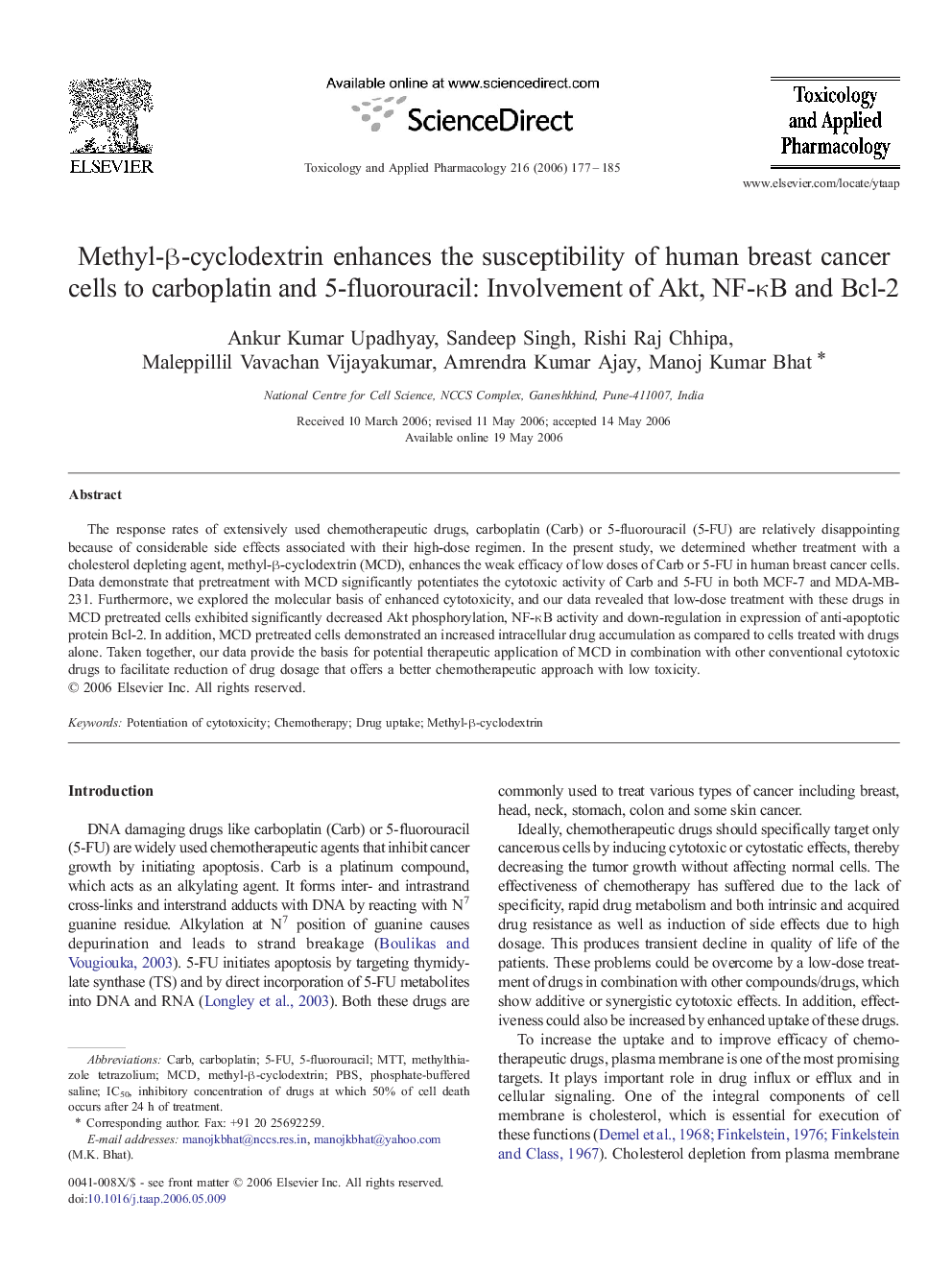| Article ID | Journal | Published Year | Pages | File Type |
|---|---|---|---|---|
| 2571781 | Toxicology and Applied Pharmacology | 2006 | 9 Pages |
The response rates of extensively used chemotherapeutic drugs, carboplatin (Carb) or 5-fluorouracil (5-FU) are relatively disappointing because of considerable side effects associated with their high-dose regimen. In the present study, we determined whether treatment with a cholesterol depleting agent, methyl-β-cyclodextrin (MCD), enhances the weak efficacy of low doses of Carb or 5-FU in human breast cancer cells. Data demonstrate that pretreatment with MCD significantly potentiates the cytotoxic activity of Carb and 5-FU in both MCF-7 and MDA-MB-231. Furthermore, we explored the molecular basis of enhanced cytotoxicity, and our data revealed that low-dose treatment with these drugs in MCD pretreated cells exhibited significantly decreased Akt phosphorylation, NF-κB activity and down-regulation in expression of anti-apoptotic protein Bcl-2. In addition, MCD pretreated cells demonstrated an increased intracellular drug accumulation as compared to cells treated with drugs alone. Taken together, our data provide the basis for potential therapeutic application of MCD in combination with other conventional cytotoxic drugs to facilitate reduction of drug dosage that offers a better chemotherapeutic approach with low toxicity.
